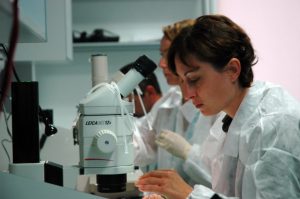Concerns about due process violation have been raised with the increasing use of a form of technology that conducts “probabilistic genotyping” as opposed to the regular DNA testing that has long been used as evidence in criminal cases. 
One example of this offered by ProPublica, a non-profit, Pulitzer prize-winning online publication, was a case out of New York two years ago. Police officers attempted to pull over a vehicle that was operating without headlines. However, they driver and passenger fled on foot. Officers gave chase and then heard a gunshot. Police never actually caught up with the suspects, but they did find a loaded handgun nearby. The car, which had been abandoned, was connected to its owner. Police arrested him, but they couldn’t link him to that gun unless they could secure a DNA match. Unfortunately for them, the DNA that was left on the handgun did not provide a good sample for conventional methods. DNA from at least four or five people was on the weapon. So prosecutors requested an analysis from a company that offers the genotyping software program.
Traditional DNA analysis asks researchers to visually and manually interpret the markers on the sample to determine whether there is a match. This new type of testing runs the information through a computerized algorithm in order to determine the likelihood that a certain individual’s DNA is present in the mixture, when compared to the DNA of a random person. Those who developed the technology insist the results are the best way to remove human bias from the process. However, criticism has arisen about whether this process undermines defendants’ due process.
Specifically, defense attorneys in Fort Lauderdale worry that the defendant, the judge and the jurors don’t have access to the inner workings of this tool (which is patented) and therefore can’t conduct a full analysis that would allow them to draw their own conclusions or question the results. As one attorney put it, defense lawyers can’t cross-examine the computer.
In the case out of New York, this technology indicated that the DNA found on the firearm was likely a match with the 19-year-old car owner. He had maintained his innocence, even after prosecutors offered a deal if he would just plead guilty to a charge of illegal possession of a firearm. The only actual physical evidence in the case was this new test, and a developer for the company testified in court that the match was 1.78 trillion times more probable than coincidental, as compared with other African Americans. compared to a match of an unrelated Hispanic person, the developer testified, it was 892 billion times more probably than coincidental. Defendant’s attorney – coincidentally, both black and Hispanic – asked for the source code of the tool so that these claims could be independently verified. However, the developer insisted this was neither necessary nor relevant.
Defendant was convicted on three charges and sentenced to 15 years in prison. Those convictions are being appealed.
While we know that DNA evidence is highly valued in criminal cases, there have been all sorts of forensic evidence that used to be taken as unquestionable proof, only to later be proven fallible (see bite mark analysis, fire patterns, etc.). Still, DNA continues to be considered reliable. However, we don’t know about the reliability of this technology to analyse it, and that raises serious questions when it’s being used to strip defendants of their freedom.
Call Fort Lauderdale Criminal Defense Attorney Richard Ansara at (954) 761-4011. Serving Broward, Miami-Dade and Palm Beach counties.
Additional Resources:
Where Traditional DNA Testing Fails, Algorithms Take Over, Nov. 4, 2016, By Lauren Kirchner, ProPublica
More Blog Entries:
Florida Supreme Court Rejects Dippolito Appeal, Case Set for Second Trial, Oct. 25, 2016, Fort Lauderdale Criminal Defense Lawyer Blog
 Fort Lauderdale Criminal Attorney Blog
Fort Lauderdale Criminal Attorney Blog


